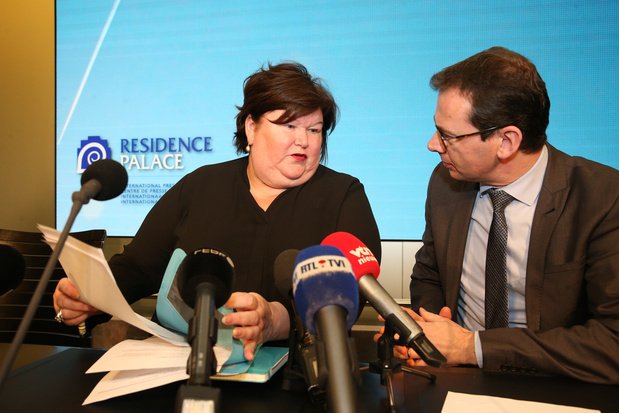The coronavirus outbreak has shone a light on one of those Only in Belgium situations: a country of just 11 million inhabitants appears to have no fewer than nine health ministers.
How does that come about?
If this is Belgium, it must be a question of language communities. That, together with a dose of federalism.
The principal face of government health policy in this matter is Maggie De Block (Open VLD). De Block is the minister for public health in the federal government, a general practitioner by profession.
As a rule of thumb, if a question affects the whole country without reference to regions or languages, it’s probably a federal matter. And so it is with Covid-19.
However there have been six reforms of the state, each of which has federalised the country a little bit more, taking responsibilities away from the national government and handing them to the regions and the language communities.
So for the Flemish Community, the minister for health is Wouter Beke (CD&V), while in the French Community the role goes to Christine Morreale (PS).
Strictly speaking, Morreale is not a member of the French Community government, but the Walloon region. That is because the region and the community keep certain responsibilities apart, but others not.
For the German-speaking community, health matters are the responsibility of Antonios Antoniadis (SP).
Back in the French Community, Bénédicte Linard (Ecolo) is responsible for the child, from birth and babies to medical prevention for children all the way up to students.
Valérie Glatiny (MR), meanwhile, has responsibility for the university hospitals, and for access to the medical professions.
And then comes Brussels.
The smallest of the three regions, Brussels manages to have three ministers charged with some aspect of health policy.
Alain Maron (Ecolo) and Elke Van den Brandt (Groen) are members of the same political grouping, and each is responsible for people with a disability, hospital policy, the elderly and psychiatric care.
Maron also has in his cabinet secretary of state (junior minister_) Barbara Trachte (also Ecolo), whose responsibility is preventive care, but only for French-speakers.
And then they were nine.
Maggie De Block would like to see a degree of re-federalisation, where powers were returned to the national government, but that’s unlikely to happen. The Flemish government for one is not a supporter of losing power.
But all parties are in favour of making things run more smoothly, and the latest health situation is likely to throw that question into sharper relief.
Alan Hope
The Brussels Times

